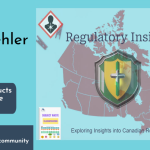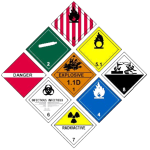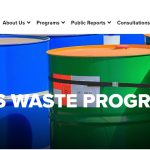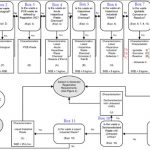Possible fines and penalties
Companies that do not comply with Regulation 347 regarding subject waste may face a variety of consequences, including:
- Legal action: The MECP or other regulatory agencies may take legal action against companies that do not comply with Regulation 347, which can result in fines, penalties, and even criminal charges.
- Loss of permit or license: Companies that do not comply with Regulation 347 may lose their permit or license to operate, which can result in significant financial losses and damage to their reputation.
- Reputational damage: Companies that do not comply with Regulation 347 may face reputational damage, which can negatively impact their business and relationships with customers and suppliers.
- Environmental damage: Noncompliance with Regulation 347 can lead to environmental damage, which can result in significant costs for cleanup and remediation.
- Liabilities: Companies that do not comply with Regulation 347 may be liable for any harm caused to human health or the environment as a result of their noncompliance.
It is important for companies to understand and comply with all relevant regulations. These regulations could be related to subject waste, including Regulation 347 and the Transportation of Dangerous Goods Regulations (TDG). Doing this, will help to avoid these consequences and protect the environment, human health and their business.
Services Mark Roehler Training Services can provide
Mark Roehler Training Services can provide you with a waste management program to assist you in maintaining compliance with Ontario Regulation 347 for managing subject wastes as well as any corresponding legislation such as TDG.
Did you know that as of January 1, 2023. Subject wastes must be present in the RPRA Hazardous Waste Program Registry (HWP registry)
As of January 1, 2023, businesses and institutions subject to Ontario’s Regulation 347 must report their activities and pay fees through RPRA’s online Hazardous Waste Program Registry. The HWP registry replaced the Hazardous Waste Information Network (HWIN) system operated by the Ministry of the Environment, Conservation and Parks.
This means that all subject waste streams previously in HWIN needs to be in the HWP registry. Your waste streams must be in the registry in order to be able to complete an electronic waste manifest and ship your subject waste off site for treatment or disposal.
What is the Hazardous Waste Program Registry?
The Resource Productivity & Resource Authority (RPRA) was directed by the Minister of the Environment, Conservation and Parks (MECP) to build and operate a digital registry that enables regulated persons to comply with the reporting requirements of the Hazardous Waste Program, and to support users of the new registry.
The Hazardous Waste Program Registry replaces HWIN and includes an online reporting portal and electronic manifesting solution. A mobile app called RPRA HazTrack is used for creating electronic manifests. The new system enables the regulated community to report on their waste management activities electronically.
RPRA built the registry and mobile app in consultation and collaboration with ministry, industry and external technology partners.
The Hazardous Waste Program made no changes to the classification criteria or reporting requirements of subject wastes. However, the reporting requirements outlined in Regulation 347 will be managed and tracked through the HWP registry.
Using the Registry
Register the subject waste in the HWP registry to allow the shipping, storing, processing and or disposal offsite. Generators, carriers, and receivers must have an account in the new registry to be listed on a manifest, create, edit or sign manifests, or report on-site waste activities, among other activities.
If you are unsure on what your requirements are under Ontario Regulation 347, or whether you have subject wastes or even if your subject wastes have been transferred to your HWP registry simply click here to schedule a meeting to discuss this requirement with Mark Roehler of Mark Roehler Training Services.
How can Mark assist you?
Mark can review your waste streams to verify as to whether they are in fact subject wastes. Additionally Mark will review the waste streams for classification information. Ontario Regulation 347 and TDG classifications within your RPRA HWP registry will be verified. Mark can also assist in setting up your HWP registry if incomplete. If information in the RPRA HWP registry is inaccurate, the manifest generated will have non-compliant information. This will result in possible fines and penalties under Regulation 347, TDG or both.
Feel free to reach out to Mark by clicking here to schedule a complimentary consultation call to review your current situation and how Mark Roehler Training Services can assist you in managing your subject waste streams.
Mark Roehler Training Services can provide regulatory training on Ontario Regulation 347 and TDG. Mark can develop a site specific waste management program for your faciity. Do not hesitate to reach out to determine how we can be of assistance. You can schedule a meeting to discuss your subject waste by clicking here.








